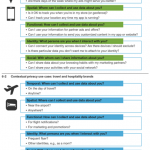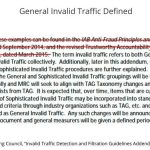After Trump’s DACA Decision, Dreamers Start Plotting How To Fight For Their Future
“It’s been a sad day,” was one of the first things Humeyra Celik said to me (September 08, 2017) when I called her about President Trump’s decision to rescind the Deferred Action for Childhood Arrivals (DACA) program. And how could it not be? The president put the fate of hundreds of thousands of Dreamers in limbo, giving Congress six months to pass immigration legislation.
Now Celik and other Dreamers are focusing on what’s next and scrambling to figure out how to fight for their rights in the days to come.
The daughter of undocumented immigrants, Celik received legal protection thanks to DACA, which was signed by the Obama administration in 2012. It provided her with a temporary permit that allowed her to study and work in the U.S. without the fear of deportation.
She moved from Turkey to the suburbs of Philadelphia when she was seven years old with her mom–her dad had already been living in the U.S. For years she lived as an undocumented immigrant, working hard in school to make it to the top of her class. After scoring high grades in high school, she went to a New York community college and later transferred to City College of New York, where she had to pay full price as an international student due to her legal status. After graduating, she worked numerous internships that led to her current gig as a production coordinator at MTV.
Celik was legally able to find work and go to school thanks to DACA. Now she’s fearful—the life and community she’s built in this country since childhood could be all for naught.
“It’s sad because I did all this hard work,” Celik says, describing her experience. After Attorney General Jeff Sessions announced the decision on Monday to rescind DACA, fear took over her body. “It’s been very emotional,” says Celik.
Her legal status is covered until October 2018–after that it’s unclear. “I’m not really sure what’s going to happen,” Celik says, adding “it’s really scary.” Right now she is pinning her hopes on widespread public protests putting pressure on lawmakers to pass legislation that keeps Dreamers in the country.
A Community In Limbo
Of the nearly 800,000 DACA recipients, 95% of them are currently working or in school. They all follow the same process, applying to the program every two years, to maintain their status and remain protected from deportation. “It’s already frustrating enough to deal with this every two years,” says Celik, “to prove that I deserve to be here.” This includes filing expensive paperwork with lawyers and running extensive background checks. Still, it’s better than the alternative of losing her legal status. “I have a brother who’s in the same situation,” Celik adds.
Isaac Montiel, another Dreamer and current student at the New York City College of Technology, is in the same boat. He moved to the U.S. from Mexico with his mother when he was 13. In 2012 he became a DACA recipient, which helped him get into college. Though he already had an associate’s degree in computer engineering, he is now working to get his bachelor’s in computer systems technology. While keeping up with his studies, he leads extracurricular programs to provide aid and assistance to other immigrant students in similar situations.
As a community leader, he had a feeling this day was coming and knew he’d have to be an example to others. “I was kind of prepared for this,” he says. “It hit me but I had to be strong for the students that I lead in my community.” This week Montiel is in Washington, D.C. to protest Trump’s decision. He took to the streets (September 08, 2017) and is participating in a hunger strike with dozens of other dreamers from around the country.
Both Celik and Montiel have had a sour feeling in their stomach since Trump was elected president. Trump mentioned DACA earlier on in his campaign but then seemed to back off–the undocumented community was unsure of whether or not the president would act. As time went on, their fears continued to mount. Soon, the writing was on the wall. It became clear, says Celik, “that this thing we had could be taken away at any second.” This week it was.
What’s Next?
Montiel’s big hopes hinge on Congress having a heart and taking action. Trump’s decision to rescind DACA put the issue on the front page. Now Dreamers and their allies are trying to get lawmakers’ attention. Legislation, he says, is the only option–new laws must be passed that “will not compromise our families [or] any of the benefits that we have.”
For Celik, she just hopes U.S. citizens begin to understand the gravity of the situation. “It’d be really helpful if people were more educated about this,” she says. “It’s sad that a lot of people–even my own friends–don’t know what [DACA] is.” It’s also important for Americans to understand the magnitude of the situation and the emotional toll it’s taking on the community of Dreamers; “be a little more conscious about how they may be feeling,” she says, “just listen to them.” And she hopes to mobilize enough of their allies to hit the streets and stage protests. “At the end of the day there’s nothing else we can do,” she says.
For now, the future remains unclear. “Everyone now is trying to figure out what their next move is going to be,” says Celik. “Maybe trying to stay here and figure something out… or do we leave? Can we leave? For myself, I’m not Turkish anymore. I grew up here since I was 7…I’m Turkish-American.”
She goes on, “We deserve to here. I work as hard as any other American–I don’t know why I have to prove I have to be here.”
Fast Company , Read Full Story
(24)













